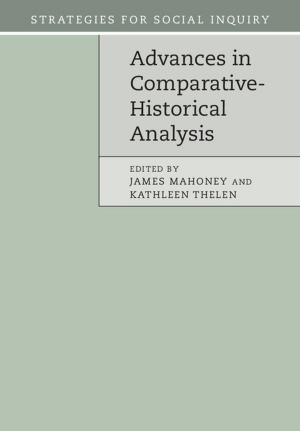Plutarch: How to Study Poetry (De audiendis poetis)
Nonfiction, History, Ancient History, Fiction & Literature, Literary Theory & Criticism| Author: | Plutarch | ISBN: | 9781316142301 |
| Publisher: | Cambridge University Press | Publication: | June 30, 2011 |
| Imprint: | Cambridge University Press | Language: | English |
| Author: | Plutarch |
| ISBN: | 9781316142301 |
| Publisher: | Cambridge University Press |
| Publication: | June 30, 2011 |
| Imprint: | Cambridge University Press |
| Language: | English |
Plutarch's essay 'How to Study Poetry' offers a set of reading practices intended to remove the potential damage that poetry can do to the moral health of young readers. It opens a window on to a world of ancient education and scholarship which can seem rather alien to those brought up in the highly sophisticated world of modern literary theory and criticism. The full Introduction and Commentary, by two of the world's leading scholars in the field, trace the origins and intellectual affiliations of Plutarch's method and fully illustrate the background to each of his examples. As such this book may serve as an introduction to the whole subject of ancient reading practices and literary criticism. The Commentary also pays particular attention to grammar, syntax and style, and sets this essay within the context of Plutarch's thought and writing more generally.
Plutarch's essay 'How to Study Poetry' offers a set of reading practices intended to remove the potential damage that poetry can do to the moral health of young readers. It opens a window on to a world of ancient education and scholarship which can seem rather alien to those brought up in the highly sophisticated world of modern literary theory and criticism. The full Introduction and Commentary, by two of the world's leading scholars in the field, trace the origins and intellectual affiliations of Plutarch's method and fully illustrate the background to each of his examples. As such this book may serve as an introduction to the whole subject of ancient reading practices and literary criticism. The Commentary also pays particular attention to grammar, syntax and style, and sets this essay within the context of Plutarch's thought and writing more generally.















